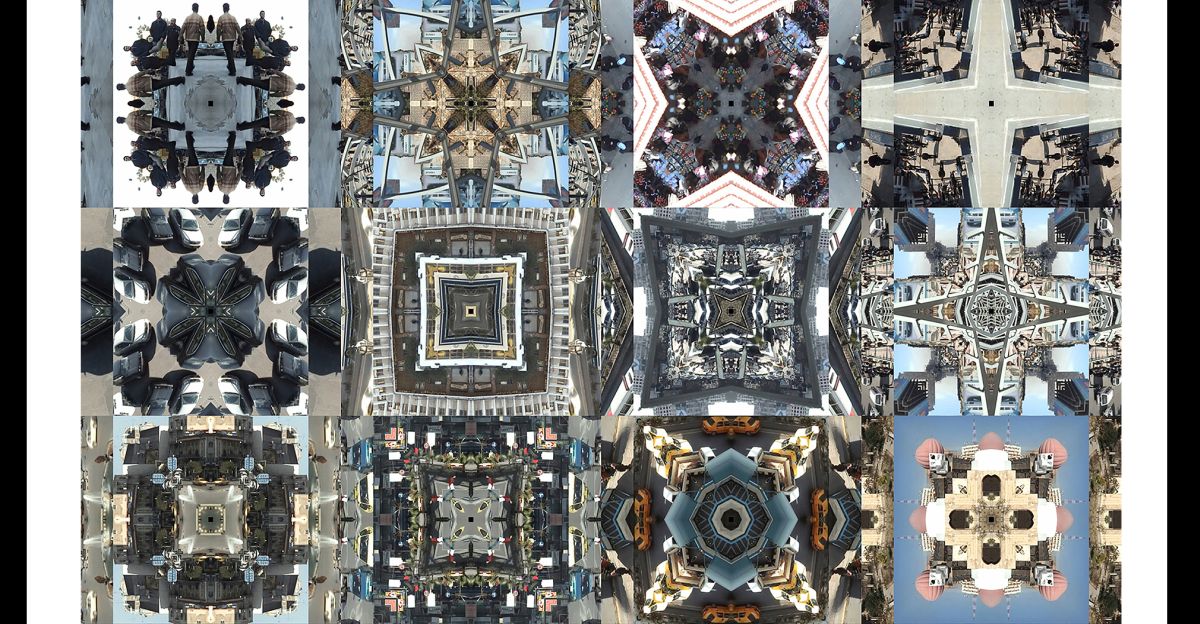With this edition, we see a return to Overland’s electronic roots: a special issue dedicated to electronic literature, a form the magazine has not experimented with much since the days of Overland express more than a decade ago.
Although we’ve published mostly Australian-based contributors in this issue, electronic literature is a thriving transnational form. The pieces here are products of our time – a time of diverse mediums and expression, and the web a place where such boundaries blur. That is to say, all of these works are poems, yet the poet/writer/composer/programmer/artist has used significantly different methods to write them. These poems are textual, aural, visual and reader controllable, and this materiality is critical to their reading.
Some of the works in Electronic Overland have been made with the aid of software or programming libraries or in programs written by other people, suggesting a collaborative nature to electronic literature even when it might first appear the writer composed the piece alone.
Many of these poems have been published elsewhere in slightly different forms: by its very nature, literature of this kind subverts formal qualities and publishing models. In truth, fitting and reshaping these works into the one issue does shoehorn them a little; but presenting them together, in a more traditional magazine format, also shows the range of forms that is electronic poetry.
Mez Breeze’s ‘Real_Time_”1sts!” [or: PanoptiConned Imagery From The Scene]’ relates a desperate competition to be first on a virtual hunt for the Boston bombers. The time encodes each line and mezangelle, just like a compression algorithm unpacks in real time. By contrast Jim Andrew’s ‘Aleph null’ is an instrument for producing ‘colour music’ that challenges our very conception of literature. Really, he has created a language machine that performs graphical poetry.
Pip Smith’s ‘Wayside renga’ is a standalone site that combines words and numerous disembodied voices to make something unexpected and seamless. This is remix poetry: interviews and conversations spliced into fragments that continuously mediate between the original utterances and their reconstructions.
In Jason Nelson’s ‘Textual skyline’, a landscape is generated from newsfeeds. Text and towers assemble alongside an anxiety-ridden soundscape, building to the tower of faces – an incredible image from a terrifying post-apocalyptic world. News, then, Nelson is saying, makes this future.
The interplay between the shapes and the sounds of shapes in Gary Barwin’s ‘The new squeeze’ creates a psychedelic poetic space that feels like it is forever folding and refolding time and space, almost as though the reader is being squeezed through the poem. Interestingly, Jessica Rae’s ‘Counting’ also gives the sensation of being trapped. The reader has no control over the looping text beneath the water; they want to break through to the light but are stuck, with only reassuring words to keep them company.
‘Disappearing’, by Hazel Smith, Roger Dean and Greg White, is a powerful aural experience. Multiple voices compete for attention in a political poem that confronts the reader through each word and sound. Death is a shadow throughout, in the human remains and the absences of the disappeared.
Finally, there is Tully Hansen’s ‘Writing’, where the text unfurls in an ever-expanding fashion, akin to the tracing of an idea. That ideas don’t linearly occur is a truism, but here the reader is invited to follow the impressions and concepts as they break open in different directions.
If this issue illustrates anything, it’s that poetry is the art of language and the computer is a language machine. If this is poetry that challenges the bounds of language, how much further can we push it?



